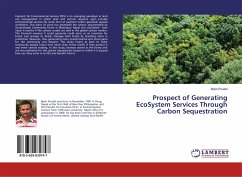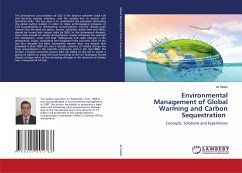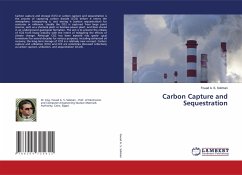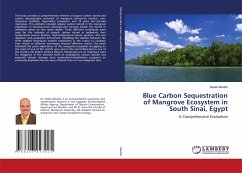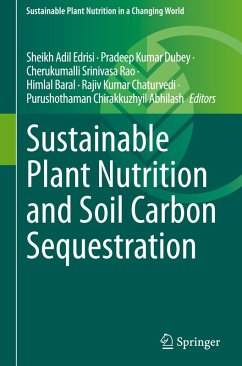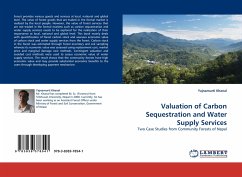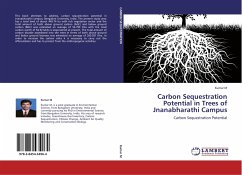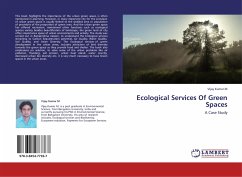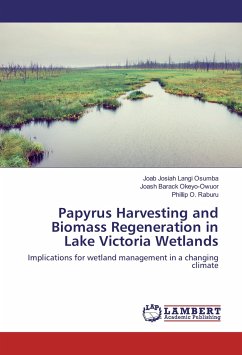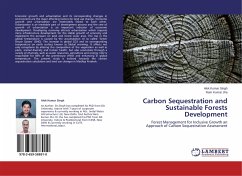
Eco-services & Carbon Sequestration potential of Pune's green spaces
Study focuses on the carbon pool analysis & phytosociological parameters of suburban vegetation and surrounding hills
Versandkostenfrei!
Versandfertig in 6-10 Tagen
60,99 €
inkl. MwSt.

PAYBACK Punkte
30 °P sammeln!
The study focuses on the carbon pool analysis and various phytosociological parameters from biodiversity perspective. More emphasis has been given on the potential of urban and hill vegetation as a carbon sink. The phytosociological data was used to determine homogeneity/heterogeneity of the vegetation stand. The soil organic carbon was estimated as it is a significant carbon sink.It also includes carbon mitigation opportunities in land use sectors and will contribute in Carbon offset projects and mitigating Urban Island effects.The information will help policy decision makers to undertake res...
The study focuses on the carbon pool analysis and various phytosociological parameters from biodiversity perspective. More emphasis has been given on the potential of urban and hill vegetation as a carbon sink. The phytosociological data was used to determine homogeneity/heterogeneity of the vegetation stand. The soil organic carbon was estimated as it is a significant carbon sink.It also includes carbon mitigation opportunities in land use sectors and will contribute in Carbon offset projects and mitigating Urban Island effects.The information will help policy decision makers to undertake responsibilities regarding carbon emissions, Carbon footprints, Carbon credits or trading agreements. Also, the study shows the positive impacts of vegetation on psychological health of human and sustainable management of existing resources. It is found that vegetation on all the hills is under threat due to increasing concretisation, thoughtless actions and unscientific plantation. The study demands creating awareness among citizens and management authorities for better future of the city.





